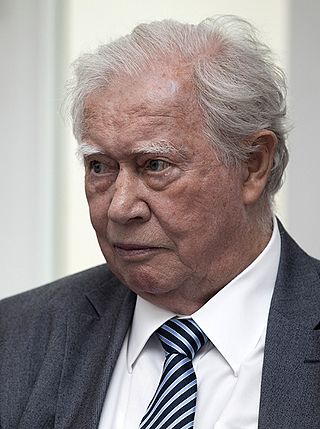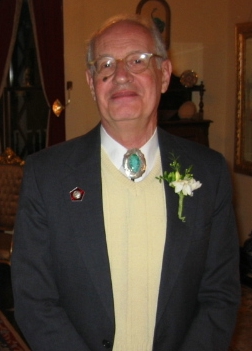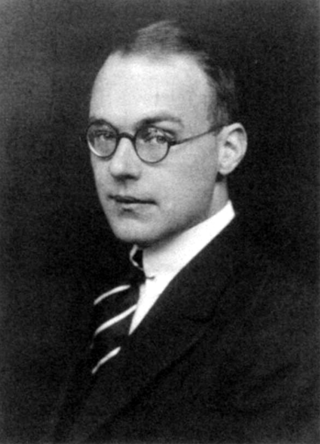Related Research Articles

Daniel Jonah Goldhagen is an American author, and former associate professor of government and social studies at Harvard University. Goldhagen reached international attention and broad criticism as the author of two books about the Holocaust: Hitler's Willing Executioners (1996), and A Moral Reckoning (2002). He is also the author of Worse Than War (2009), which examines the phenomenon of genocide, and The Devil That Never Dies (2013), in which he traces a worldwide rise in virulent antisemitism.

Austrian Nazism or Austrian National Socialism was a pan-German movement that was formed at the beginning of the 20th century. The movement took a concrete form on 15 November 1903 when the German Worker's Party (DAP) was established in Austria with its secretariat stationed in the town of Aussig. It was suppressed under the rule of Engelbert Dollfuss (1932–34), with its political organization, the DNSAP banned in early 1933, but was revived and made part of the German Nazi Party after the German annexation of Austria in 1938.

The association of Nazism with occultism occurs in a wide range of theories, speculation, and research into the origins of Nazism and into Nazism's possible relationship with various occult traditions.

Hans Mommsen was a German historian, known for his studies in German social history, for his functionalist interpretation of the Third Reich, and especially for arguing that Adolf Hitler was a weak dictator. Descended from Nobel Prize-winning historian Theodor Mommsen, he was a member of the Social Democratic Party of Germany.
Hans Rothfels was a German historian. He supported an idea of authoritarian German state, dominance of Germany over Europe and was hostile to Germany's eastern neighbours. After his applications for honorary Aryan status were rejected, due to his Jewish ancestry and increased persecution of Jewish people by Nazis, he was forced to emigrate to the United Kingdom and later to the United States during the Second World War, after which he became opposed to the Nazi regime. Rothfels returned to West Germany after 1945 where he continued to influence history teaching and became an influential figure among West German scholars.
Quantitative history is a method of historical research that uses quantitative, statistical and computer resources. It is a type of the social science history and has four major journals: Historical Methods, Journal of Interdisciplinary History, the Social Science History, and Cliodynamics: The Journal of Quantitative History and Cultural Evolution.
Richard John Alexander Talbert is a British-American contemporary ancient historian and classicist on the faculty of the University of North Carolina at Chapel Hill, where he was William Rand Kenan, Jr., Professor of History and is currently Research Professor in charge of the Ancient World Mapping Center. Talbert is a leading scholar of ancient geography and ideas of space in the ancient Mediterranean world.

Gerhard Ludwig Weinberg is a German-born American diplomatic and military historian noted for his studies in the history of Nazi Germany and World War II. Weinberg is the William Rand Kenan, Jr. Professor Emeritus of History at the University of North Carolina at Chapel Hill. He has been a member of the history faculty at UNC-Chapel Hill since 1974. Previously he served on the faculties of the University of Michigan (1959–1974) and the University of Kentucky (1957–1959).

Percy Ernst Schramm was a German historian who specialized in art history and medieval history. Schramm was a Chair and Professor of History at the University of Göttingen from 1929 to 1963.
Michael Stürmer is a conservative German historian best known for his role in the Historikerstreit of the 1980s, for his geographical interpretation of German history and for an admiring 2008 biography of the Russian politician Vladimir Putin.

Omer Bartov is an Israeli-born historian. He is the Samuel Pisar Professor of Holocaust and Genocide Studies at Brown University, where he has taught since 2000. Bartov is a historian of the Holocaust and is considered one of the world's leading authorities on genocide. The Forward calls him "one of the foremost scholars of Jewish life in Galicia."
The Leibniz Centre for Contemporary History Potsdam is an interdisciplinary research institute focusing on the contemporary history of Europe, especially Germany, and member of the Leibniz Association.
Peter J. Loewenberg is an American historian and psychoanalyst, professor of “European cultural, intellectual, German, Austrian and Swiss history, political Psychology, integrating the identities of an historian and political psychologist with the clinical practice of psychoanalysis” at UCLA.
Beefsteak Nazi or "Roast-beef Nazi" was a term used in Nazi Germany to describe communists and socialists who joined the Nazi Party. Munich-born American historian Konrad Heiden was one of the first to document this phenomenon in his 1936 book Hitler: A Biography, remarking that in the Sturmabteilung ranks there were "large numbers of Communists and Social Democrats" and that "many of the storm troops were called 'beefsteaks' – brown outside and red within". The switching of political parties was at times so common that SA men would jest that "[i]n our storm troop there are three Nazis, but we shall soon have spewed them out".
Michael Geyer is a German historian, and Samuel N. Harper Professor Emeritus of German and European History, at University of Chicago. He is the recipient of the 2012 Axel Springer Berlin Prize and Senior Fellow at the American Academy in Berlin. He graduated from Albert Ludwigs Universität Freiburg with a D.Phil.
Karen Hagemann is a German-American historian. She holds the James G. Kenan Distinguished Professor chair at the University of North Carolina at Chapel Hill. Her research focuses on Modern German, European and Transatlantic history, the history of military and war and women’s and gender history.

This is a list of books about Nazi Germany, the state that existed in Germany during the period from 1933 to 1945, when its government was controlled by Adolf Hitler and his National Socialist German Workers' Party. It also includes some important works on the development of Nazi imperial ideology, totalitarianism, German society during the era, the formation of anti-Semitic racial policies, the post-war ramifications of Nazism, along with various conceptual interpretations of the Third Reich.
The historiography of Germany deals with the manner in which historians have depicted, analyzed and debated the history of Germany. It also covers the popular memory of critical historical events, ideas and leaders, as well as the depiction of those events in museums, monuments, reenactments, pageants and historic sites, and the editing of historical documents.
Alon Confino is an Israeli cultural historian. He currently serves as the Director of the Institute for Holocaust, Genocide, and Memory Studies and a Professor of History and Judaic Studies at University of Massachusetts Amherst.
Geoffrey J. Giles is a historian of Germany and professor emeritus at the University of Florida.